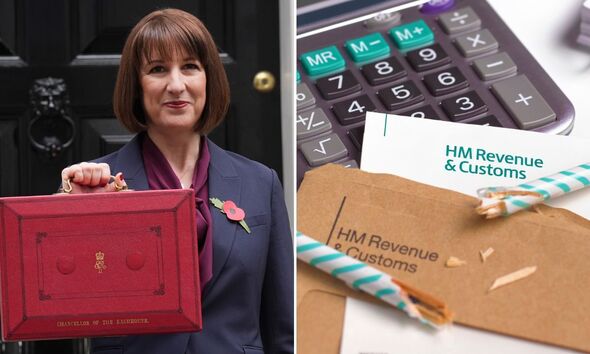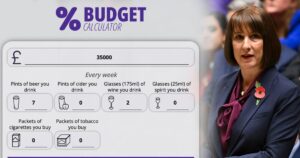
Chancellor Rachel Reeves delivered the autumn Budget today, announcing an additional £40 billion a year in taxes to “rebuild Britain.”
The plans see borrowing increase by around £32.3 billion a year while spending increases by approximately £70 billion annually over the next five years.
The huge tax-raising budget is the highest the country has seen in decades. But the government sees it as necessary to “restore economic damage and turn the page on 14 years” of a Conservative-led government.
Below are three major policies that Rachel Reeves did not announce in her Budget, likely to the disappointment of voters.
Income tax
Many hoped that income tax would be cut, especially due to inflation changes and the cost-of-living crisis.
But Chancellor Rachel Reeves confirmed that the income tax rates would remain the same in her Budget.
However, the threshold will rise in line with inflation in 2028. The change means a tax increase for individuals whose incomes rise with inflation, placing some into higher tax brackets.
The freeze in the rates was extended from 2026 to the 2028/2029 tax year, and Rachel Reeves said that extending the freeze would not be fair to working people.
VAT
A cut in VAT would’ve contributed to a decrease in living expenses, especially for those who are not on the threshold of paying Income Tax.
But instead Rachel Reeves also pledged not to increase VAT, which stands at 20%. However, private schools will be subject to VAT on fees as of 2025.
The change is expected to benefit the government by £1.3bn to £1.5bn per year.
She said: “To provide the highest quality of support and teaching that they deserve, we will introduce VAT on private school fees from January 2025, and we will shortly introduce legislation to remove business rates relief from April 2025, too.”
National Insurance
Rachael Reeves could have lowered the National Insurance, meaning workers would retain more of their pay; however, the opposite was done.
Instead, the plans saw a change in the national insurance, which has businesses will be contributing the most to the total tax rise.
From April 2025, the amount businesses will pay on their national insurance contributions will increase from 13.8% to 15%. Additionally, the threshold employers start paying on employees’ earnings will be lowered from £9,100 to £5,000.
The chancellor said that she would extend the Employers Allowance meaning the amount employers can claim back from their National Insurance bill will increase from £5,000 to £10,500.


















